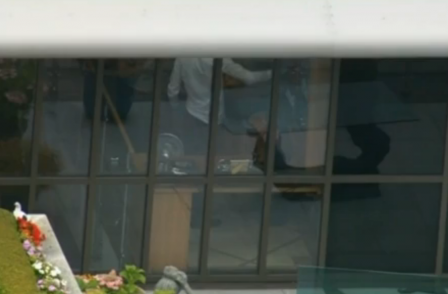
As Nick Davies might put it, a blind man in a dark room could see that a police raid on the home of Sir Cliff Richard in connection with a sex crime allegation is a big story.
Several unmarked police cars and around a dozen police officers arriving at his penthouse apartment in Berkshire at 10.30am on a Thursday morning is not going to go unnoticed.
It appears to have been reasonably well known that a historic complaint of a crime had been made, so it is was inevitable that journalists were going to put two and two together and break the story.
The BBC deserves praise in my opinion for getting there first and for having the courage to run with it so forcefully, complete with helicopter.
As we know from Rolf Harris and others, publicity around a case can lead to more witnesses coming forward.
It is tough on Richard to face the taint of this sort of coverage when he has not even been questioned yet himself. But once the police undertake such a big raid on his home, what is going on becomes a matter of public record. The facts are the facts.
The BBC has faced criticism in the past for its failure to break news and its cautiousness. The most notorious example of this was the decision to spike the investigation revealing allegations of sexual abuse against the late DJ Jimmy Savile by Newsnight in December 2011.
Former Times editor James Harding, who joined the BBC as head of news last year, has made clear that he has the final say on big stories. And I think it is encouraging that he is justifying his £340,000 a year salary a little by making risky and brave editorial calls like this one.
Update: I take back the bit about him justifying his £340k salary by making the big calls. Apparently he was on holiday last week so deputy director of news Fran Unsworth gave the story the green light, according to The Guardian. So kudos to her (salary: £183,000).
Email pged@pressgazette.co.uk to point out mistakes, provide story tips or send in a letter for publication on our "Letters Page" blog
